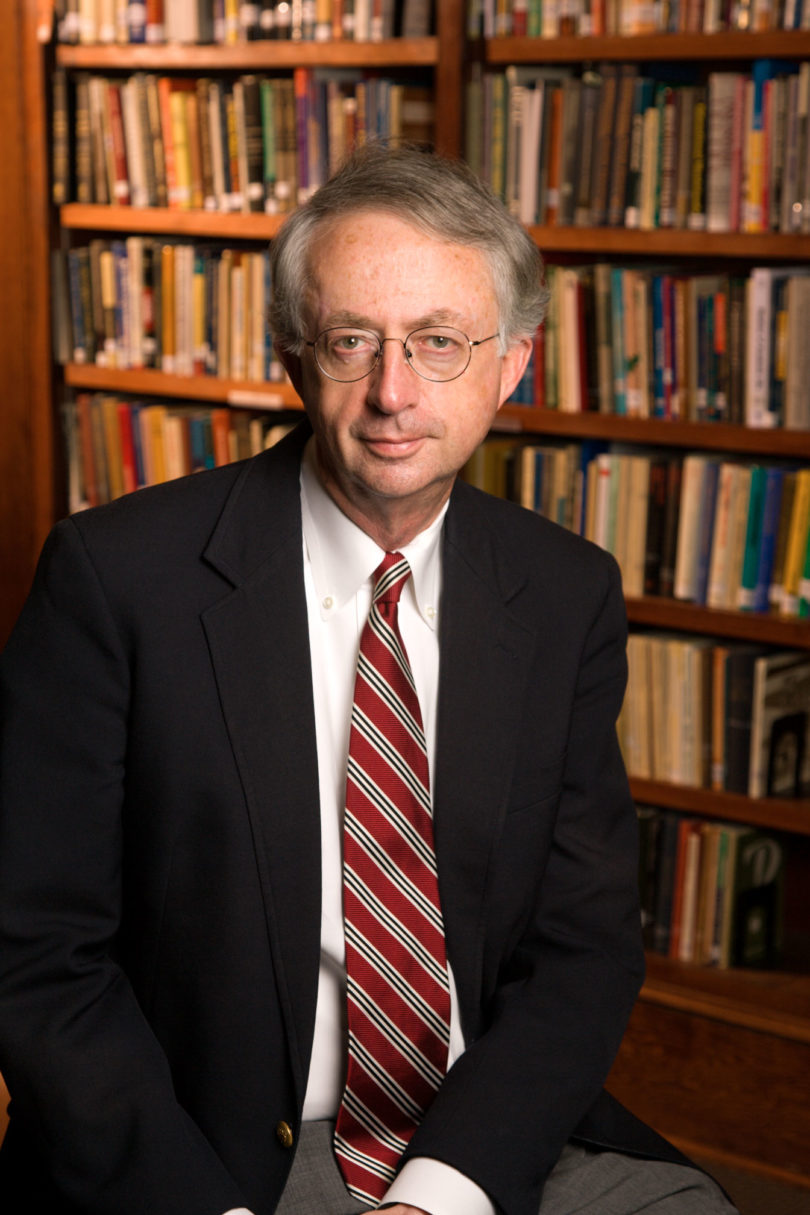Thomas George Dyer, University Professor emeritus and vice president for instruction emeritus at UGA, died Oct. 28 at the age of 70.
“Tom Dyer was a true servant of the institution and the finest example of an academic professional,” said UGA President Jere W. Morehead. “In his many leadership positions, including vice president for instruction and, for a short period, provost, he helped guide the university through one of its most critical periods. Through the years, he dispensed much wise counsel to UGA officials, including me, and I spent many hours in his office discussing issues. He will be greatly missed.”
Born in Marshall, Mo., Dyer earned his bachelor’s degree in history at Missouri Valley College and master’s and doctoral degrees at UGA in 1972 and 1975, respectively. In a 2006 Columns interview before his retirement, Dyer said that he never intended to spend 36 years at UGA (five as a graduate student and 31 as a professor and administrator).
“I intended to stay here for a year, get a master’s degree and leave,” he said.
Instead, Dyer got his doctorate in history, met his wife, Anna (who also was a graduate student in history), was hired as a temporary instructor in the history department and realized that Athens was the perfect place to live. Dyer called himself “old-fashioned” when relating his commitment to his career and UGA.
“I’ve enjoyed everything,” said Dyer. “I’ve been enormously fortunate, and I’m extremely grateful to the university for the opportunities I’ve had… The university has been very good to me, and I’ve tried to reciprocate.”
Dyer rose through the faculty ranks to become professor of history and higher education. He also held a number of administrative positions including vice president for instruction, associate vice president for services, associate vice president for academic affairs (twice) and interim senior vice president for academic affairs and provost.
While vice president for instruction, Dyer focused on residential learning, helping to establish Freshman College, the language communities and Franklin Residential College. As associate vice president and senior associate vice president for academic affairs, he started UGA’s minority faculty hiring initiative, which doubled the number of tenure-track African-American faculty. Dyer was founding chair of the Holmes-Hunter Lecture, which honors the first black students to be admitted to UGA; acted as general chair of UGA’s bicentennial celebration that lasted for 17 months in 1984-85; and, at the time of his retirement, was director of the Institute of Higher Education.
“The institute wouldn’t be where we are today without Tom’s diligent work on our behalf. He was an outstanding leader and scholar whose forward thinking made a tangible difference here at UGA and beyond,” said Jim Hearn, interim director of IHE. “We will deeply miss his intellect, his wit and his friendship.”
During Dyer’s tenure, the productivity and stature of the institute increased dramatically. Currently, its doctoral programs in higher education are ranked sixth among more than 100 ranked programs, according to U.S. News&World Report.
“Tom was a good friend and mentor to me, and I am thankful to have known him. His imprint on the Institute of Higher Education and the University of Georgia will be here for generations to come,” said Libby V. Morris, interim senior vice president for academic affairs and provost.
Dyer wrote three books: Theodore Roosevelt and the Idea of Race, The University of Georgia: A Bicentennial History, 1785-1985 and the award-winning Secret Yankees: the Union Circle in Confederate Atlanta.
Dyer received the Governor’s Award in the Humanities in 1996, the University of Georgia Medallion for Distinguished Public Service in 1994, the Sterling Bicentennial Medallion for Distinguished Service to UGA in 1985 and recognition for teaching excellence at UGA in 1983. In 2007, the UGA Alumni Association presented Dyer with its Faculty Service Award, which is given to faculty members for distinguished service to the university.
Dyer is survived by Anna Burns Dyer, his wife of 42 years; his daughter Elizabeth Dyer and son-in-law Kashuo Bennett of Nairobi, Kenya; brothers James Dyer and Samuel Dyer both of Marshall, Mo.; sister-in-law MaryLou Dyer of Washington, Ga.; and brother-in-law Harris Burns (Julie) of Florence, Ala. He was predeceased by brothers John Dyer and Peter Dyer.
A memorial service for Dyer was held Oct. 30. His family has requested that donations in his honor be made to the Thomas G. Dyer Academic Support Fund within IHE. The fund supports the academic mission of the institute, including the doctoral program in higher education, visiting scholars and student programs and activities. For more information, see http://ihe.uga.edu/giving.








